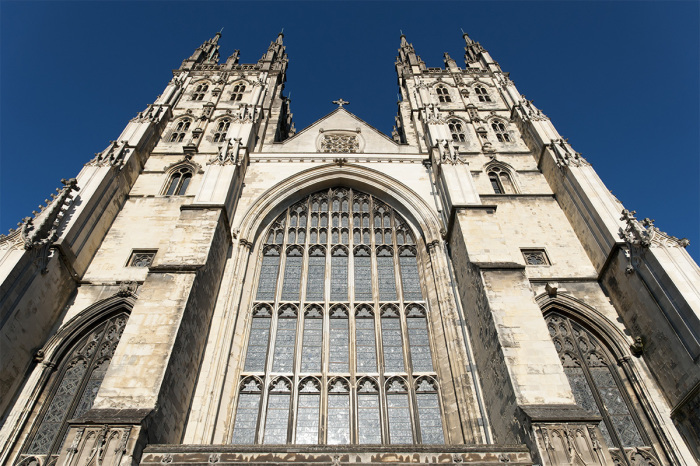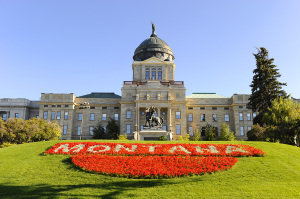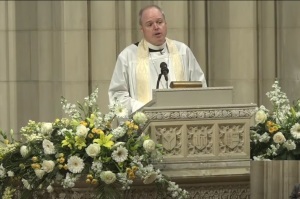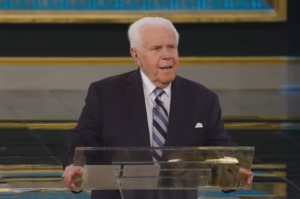Anglican group claims 'not everyone' in Bible is 'cisgender': 'Some clear queer characters'

An Anglican campaign group has published a resource guidance suggesting that the Bible supports transgender identity, claiming that "not everyone in the Bible is cisgender" and "affirms trans, intersex and queer people."
The guidance, hosted on the website LGBT Faith UK among other resources in its "The Bible Affirms" series, claims the Bible includes "some clear queer characters" and highlights eunuchs and women engaging in traditionally masculine roles as examples.
The document's title asserts: "The Bible affirms trans, intersex, and queer people." It opens with the statement: "Not everyone in the Bible is cisgender. Nor is everyone in the Bible biologically or anatomically male or female." The guidance points to eunuchs as "biblical ancestors" of trans-identified individuals, emphasizing their role in Scripture.
One key example cited is from Acts 8, where an angel directs the evangelist Philip to meet an Ethiopian eunuch reading Scripture. Philip shares the Christian message and baptizes the eunuch. The guidance interprets this as evidence that the eunuch was accepted as "a full member [of the Church] without having to be totally male or totally female. God called him just as he was."
Eunuch is a reference to a male servant of a royal household who was castrated "for the purpose of trusted servitude." As A. Philip Brown II, associate professor at God's Bible School and College in Cincinnati, Ohio, points out in a 2017 report, the biblical context for eunuch "was not used to denote transgender persons."
The guidance claims that while "there are no characters in the Bible who could be definitely identified as intersex," "there are some characters who might be."
Specifically, it references Jesus' interaction with the Samaritan woman in the Gospel of John, suggesting that her story hints she could be "intersex" and that Christ affirms her identity.
It adds that while identifying "queer characters in the Bible" can be challenging, examining gender roles reveals examples such as Deborah, the female judge who led the Israelites into battle — a role characterized as "a very male thing for a woman to do."
The guidance, authored by Ann Reddecliffe, is an edited extract from her book LGBTQ Welcome and is not an official position of the Church of England.
LGBT Faith UK is associated with the advocacy group Changing Attitude, which campaigns for "radical inclusion" within the Church of England.
Founded by retired Anglican priest Colin Coward, Changing Attitude said it wants to transform what it describes as the Church's "patriarchal, heteronormative, white, western privileged culture" into one that "unconditionally embraces lesbian, gay, bisexual, transgender, intersex, and queer people."
The group has actively lobbied Church of England bishops as part of the Living in Love and Faith initiative, a consultation process on sexuality and gender issues, The Telegraph reports. Campaigners hoped the process would encourage bishops to adopt a more "inclusive" stance ahead of the 2023 Synod.
The Church of England's official doctrine states that "sexual intercourse, as an expression of faithful intimacy, properly belongs within marriage exclusively," defining marriage as a lifelong union between "one man with one woman." The pastoral guidance set out in 2023 for the Prayers of Love and Faith reiterates this stance, affirming that "it is within marriage that sexual intimacy finds its proper place."
However, in 2018, the Church of England endorsed adapting the Affirmation of Baptism service to support trans-identified individuals, allowing them to renew their faith publicly. The following year, the denomination stated it would recognize marriages involving trans-identified individuals as long as the spouses were of opposite sexes when the marriage occurred.
In October, Archbishop of Canterbury Justin Welby, who resigned in November, came under fire after he made comments supporting sexual intimacy in same-sex relationships.
At the time, Welby stated that sexual intimacy is morally acceptable in "stable, committed and faithful" relationships, regardless of gender, sparking backlash from Evangelicals within the denomination who accused him of openly disregarding Church of England doctrine.
British Catholic cleric Calvin Robinson, who joined the Old Catholic Church after claiming his ordination in the Church of England was blocked because of his conservative theological views, recently warned Americans to avoid the same mistakes that he said are leading to the destruction of his mother country.
"The Church of England has become very liberal in terms of divorce, sex outside marriage, same-sex relationships, transgenderism," Robinson, who now leads a church in Michigan, told CP. "And every time the Church tries to be more inclusive, it actually becomes more exclusive to Christianity and to Christian values, and more inclusive to worldly values and just further plummets that downward trajectory."
"It's a great shame," he added.
Robinson noted that while American Christians seem to him much less ashamed of speaking openly about their faith, he fears the U.S. is typically about 10 years behind the destructive spiritual and political trends that manifest in Europe.
Traditional "British values" have given way in his country to a nebulous multiculturalism that insists there is no such thing as British values, and that "we just need to keep importing other people's."
"These kinds of trends are happening in the States, too, I think," he said. "Be careful. American culture is a fantastic culture. Hold on to it, promote it, encourage it. If you want to become multicultural and let other cultures in, that's something you have to consider. But do not give it up to the detriment of your own."





























